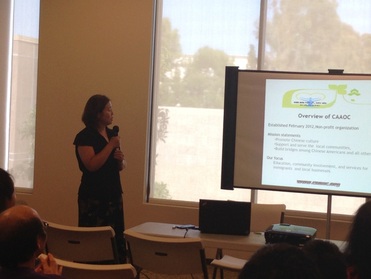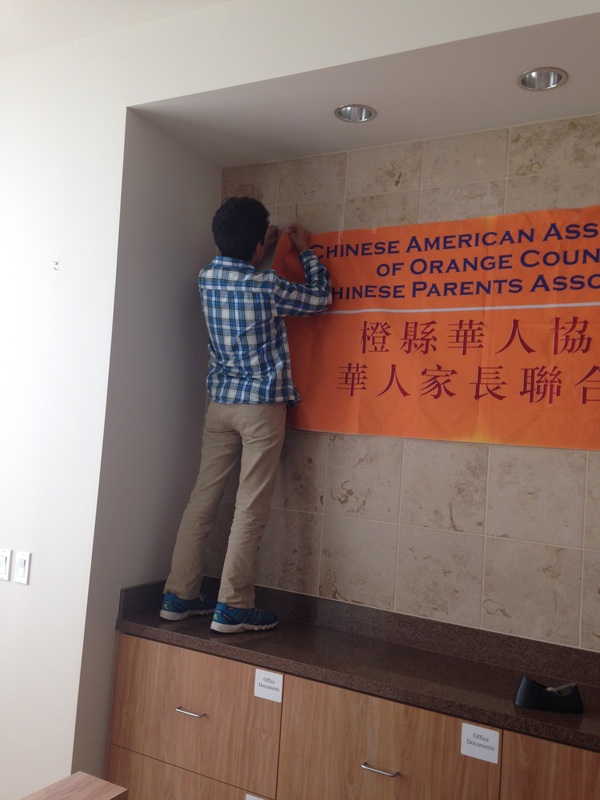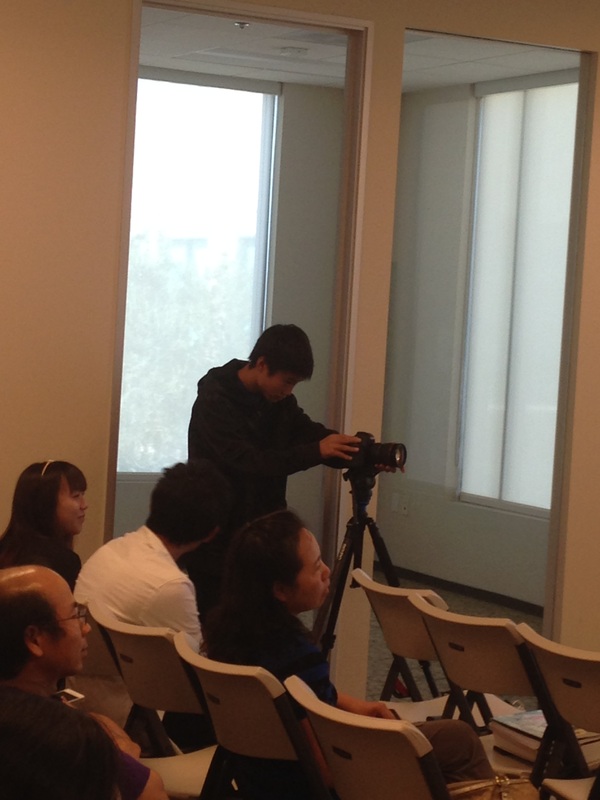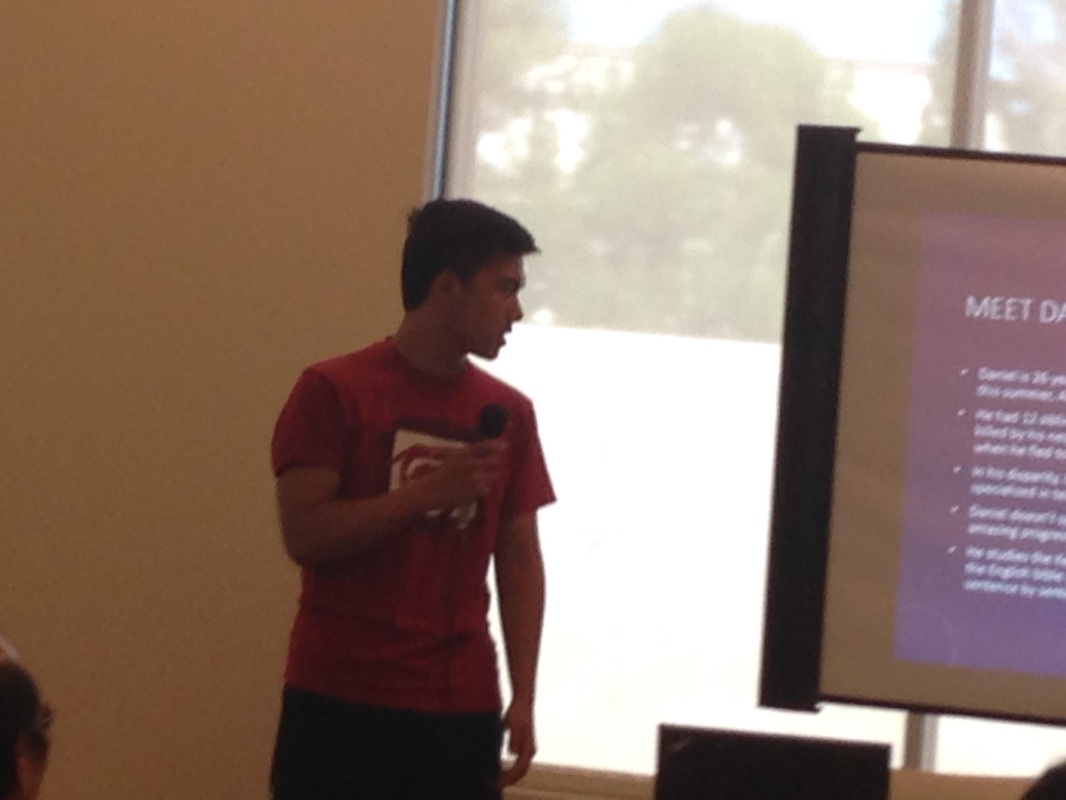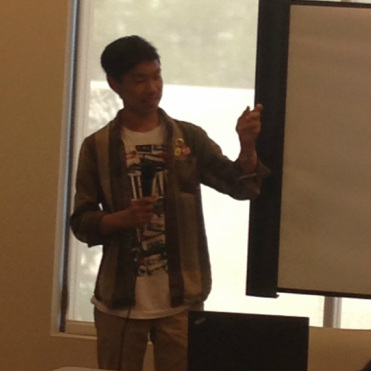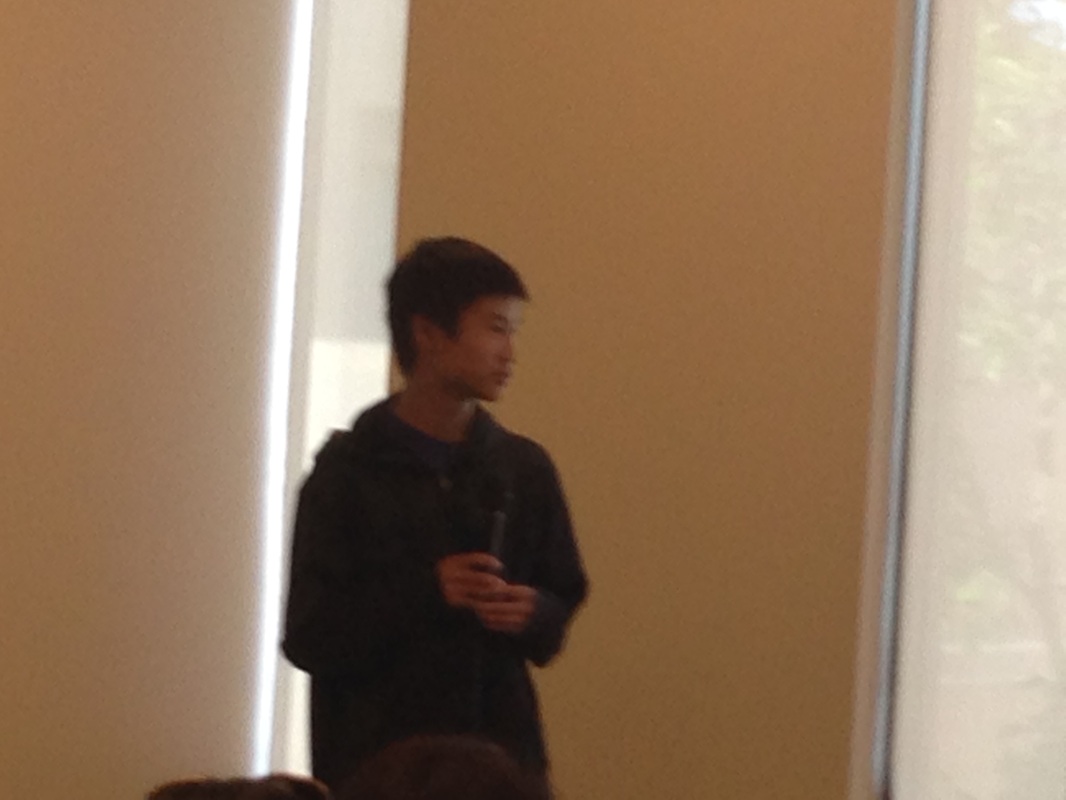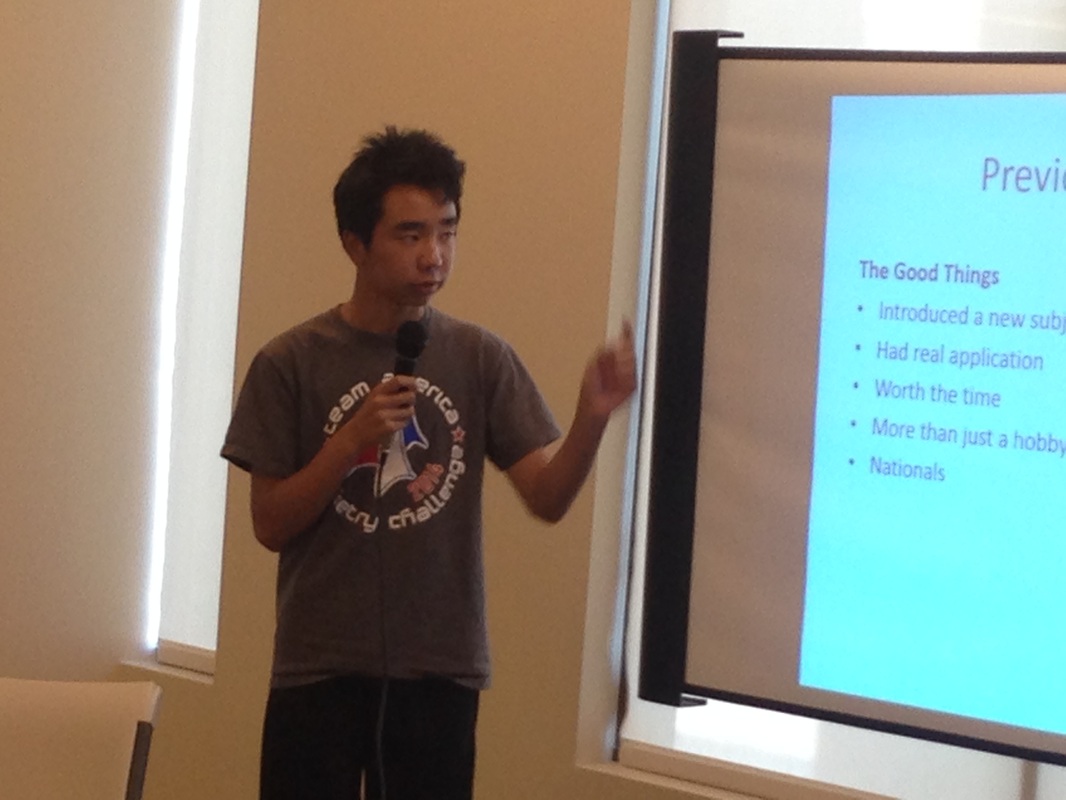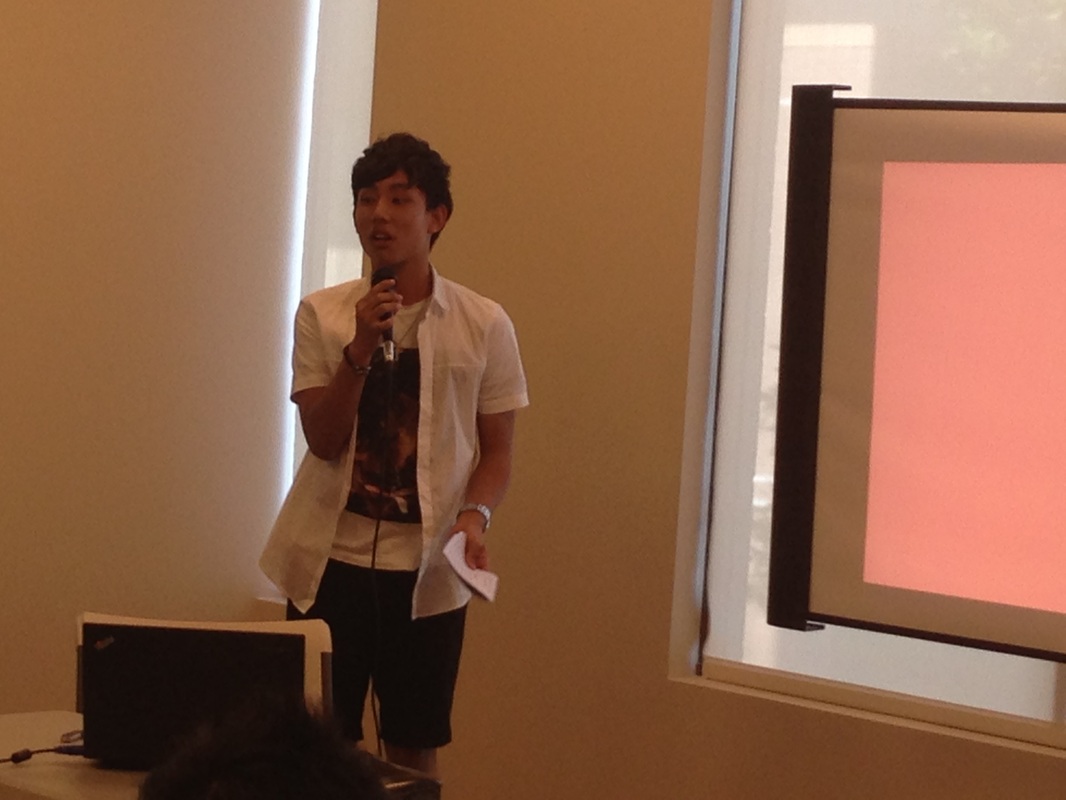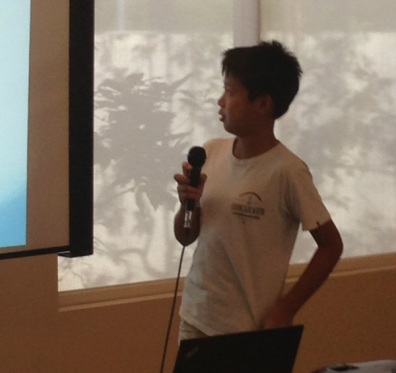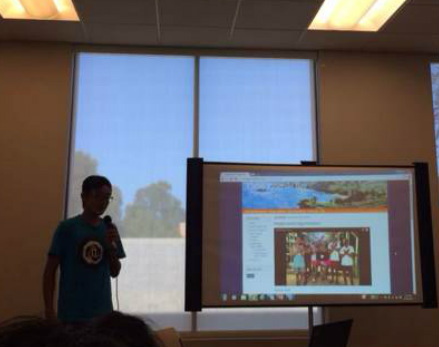学生暑期活动经验交流会
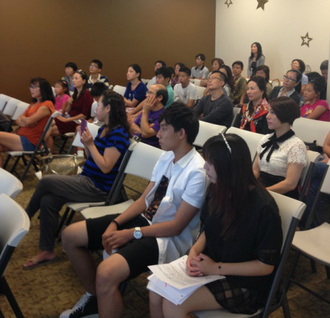
成功的人生需要哪些素质?不仅仅是优秀的学习成绩,品德及能力的培养同样重要,这需要在课堂之外去学习和锻炼。10月19日,橙县华人家长会举办了学生暑期活动经验交流会。来自橙县不同学校的六位学生在会上与大家分享了他们暑期参加各种课外活动的经历,通过这些活动,他们提高了组织能力、增长了知识,更重要的是,这些活动让他们增强了责任感和服务社会的意识,为他们今后的学习、工作和人生积累了经验。
点击以下链接,可以分享交流会上6位同学的精彩发言:
在卢旺达度过的暑假.pptx - Google云端硬盘
https://docs.google.com/file/d/0B0ea871dJR_5a1ZHN042eHAwaEk/edit?pli=1 中文翻译:Jack Sun,10th Grade
| |||||||
我的未来在我的手上中文翻译: Howard Xuan, 8th grade, Rancho
| |||||||||||||||
中文翻译:Cindy (Shuyi) Wang, 10th grade, Uni-high
| |||||||||||||||
中文翻译:Cindy (Shuyi) Wang, 10th grade, Uni-high
| |||||||||||||||
| |||||||||
中文翻译:Jack Peng, 8th grade, Rancho
| |||||||||||||||
|
My
experience at Catalina Biology Lab
http://www.campemeraldbay.org/ http://www.campemeraldbay.org/emerald-bay/summer-programs http://www.campemeraldbay.org/node/133 |
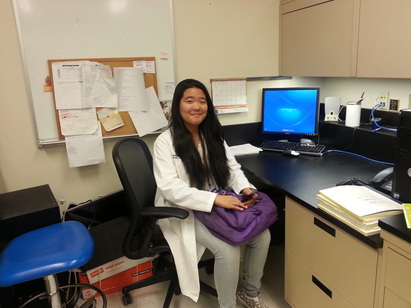 Iris , 11th Grade, Troy High School,
Iris , 11th Grade, Troy High School,
summer
research intern at Icahn School of Medicine at Mount Sinai
I was extremely lucky to be chosen as the only high school summer research intern at Icahn School of Medicine at Mount Sinai at New York City working under Dr. Wei this summer.
The purpose of the research in general was to study the diseases of the ocular surface and cornea. Along with Dr. Wei, I started a new project to test a new drug that would potentially have significant effects on dry eye diseases. Because the project was new, we started by culturing the cells under a fume in the laboratory. We would check in on the cells under a microscope every morning to make sure they were growing well in the incubator. We used 6 large flasks to store the cells to be used to test for the drug and three small flasks for my practice. I practiced pipeting medium up and down the conical tubes in different ways as well as learning alongside the professor the basics of cell culturing.
Besides being in the lab and culturing cells, we had many side projects as well. One small side project included RNA extracting, which I got to look in on for a small portion of time. We also spent a large portion of time writing and editing papers on dry eye diseases that Dr. Wei had written as well as writing grants for his upcoming project to study the correlation between dry eye diseases and Hepatitis B/C.
I learned many skills in the laboratory setting including how to use an incubator, how to culture cells, how to use a CO2 fyrite, and various lab skills such as pipeting using glass and calibrated pipets.
I was extremely lucky to be chosen as the only high school summer research intern at Icahn School of Medicine at Mount Sinai at New York City working under Dr. Wei this summer.
The purpose of the research in general was to study the diseases of the ocular surface and cornea. Along with Dr. Wei, I started a new project to test a new drug that would potentially have significant effects on dry eye diseases. Because the project was new, we started by culturing the cells under a fume in the laboratory. We would check in on the cells under a microscope every morning to make sure they were growing well in the incubator. We used 6 large flasks to store the cells to be used to test for the drug and three small flasks for my practice. I practiced pipeting medium up and down the conical tubes in different ways as well as learning alongside the professor the basics of cell culturing.
Besides being in the lab and culturing cells, we had many side projects as well. One small side project included RNA extracting, which I got to look in on for a small portion of time. We also spent a large portion of time writing and editing papers on dry eye diseases that Dr. Wei had written as well as writing grants for his upcoming project to study the correlation between dry eye diseases and Hepatitis B/C.
I learned many skills in the laboratory setting including how to use an incubator, how to culture cells, how to use a CO2 fyrite, and various lab skills such as pipeting using glass and calibrated pipets.
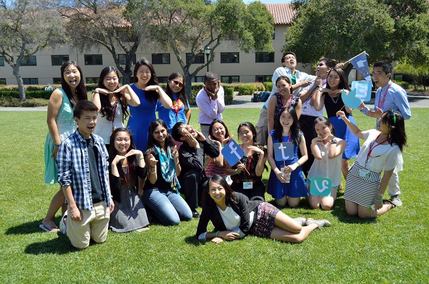
Youth
Leadership Conference at Stanford’s Asian Liver Center
Every year over 100 high school students come together at Stanford University to participate in the Stanford Asian Liver Center's annual Youth Leadership Conference (YLC) and fight hepatitis B, while learning more about what it takes to be a leader. This past summer, I was an assistant team leader for the 12th Youth Leadership Conference at Stanford University. Along with other team leaders from various high schools and colleges, we build the strong bond among all the youth who are dedicated to raise awareness for hepatitis B virus especially in Asian Pacific Islander communities. We also help participants to understand how to run student club in the more productive way. One of the highlight at YLC is, I helped lead a group of 11 high school students in completing a Social Media Campaign that won 1st place in all 10 groups at YLC.
I was also selected as the Events Chair for 2014 – 2015 year for Team HBV’s International High School Advisory Board overlooking and organizing all events in high schools nationwide. If you want to know more about Team HBV, I strongly encourage you to start a high school or collegiate chapter at your schools to join us in raising awareness for hepatitis B virus.
Every year over 100 high school students come together at Stanford University to participate in the Stanford Asian Liver Center's annual Youth Leadership Conference (YLC) and fight hepatitis B, while learning more about what it takes to be a leader. This past summer, I was an assistant team leader for the 12th Youth Leadership Conference at Stanford University. Along with other team leaders from various high schools and colleges, we build the strong bond among all the youth who are dedicated to raise awareness for hepatitis B virus especially in Asian Pacific Islander communities. We also help participants to understand how to run student club in the more productive way. One of the highlight at YLC is, I helped lead a group of 11 high school students in completing a Social Media Campaign that won 1st place in all 10 groups at YLC.
I was also selected as the Events Chair for 2014 – 2015 year for Team HBV’s International High School Advisory Board overlooking and organizing all events in high schools nationwide. If you want to know more about Team HBV, I strongly encourage you to start a high school or collegiate chapter at your schools to join us in raising awareness for hepatitis B virus.
